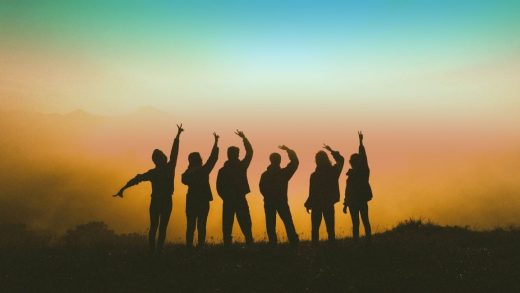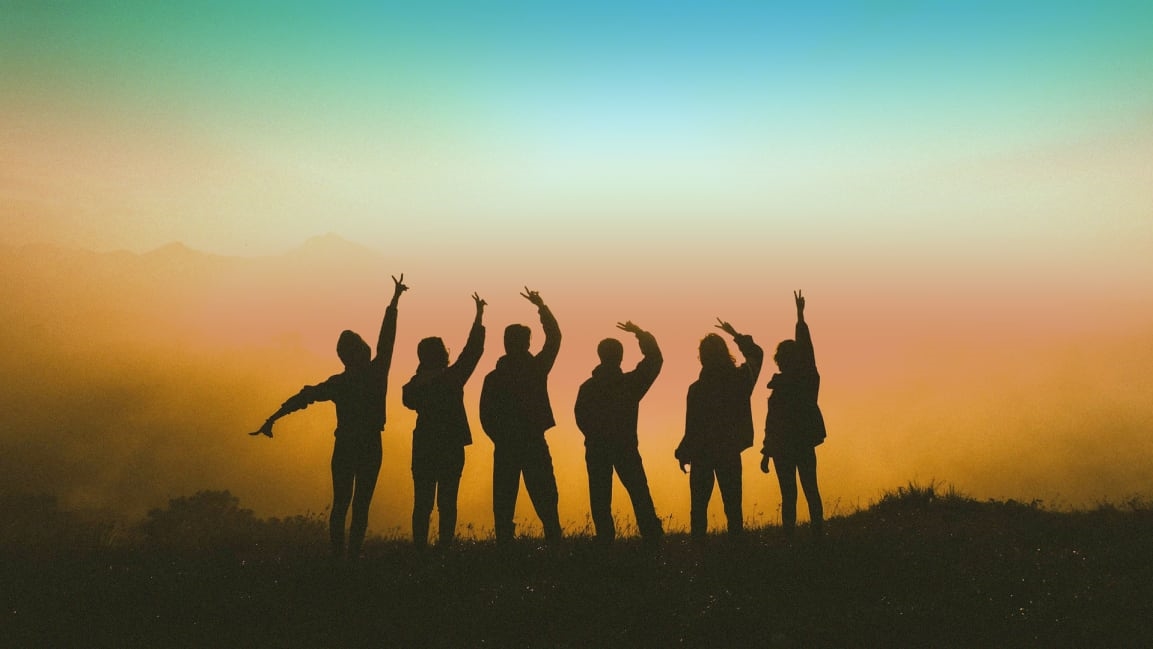I was skeptical of group life-coaching, until I tried one geared at WOC
For as long as I can remember, I’ve always been interested in self-improvement. At certain stages of my life, those interests bordered on obsession, until I realized that it was stressing me out more than it was adding to my life.
I’ve tried various diets for the sake of my brain health, experimented with hypnosis and setting “worry hours” in a quest for better sleep, and did everything from power dressing to reciting cheesy affirmations in a bid to prevent impostor syndrome for dominating my life. But when it came to things traditionally associated with “wellness,” I was much more skeptical.
That’s not to say I wasn’t committed to healthy living. I prioritize eating a healthy diet, and daily exercise and sufficient sleep are nonnegotiable parts of my day. I even meditate from time to time for the purposes of relieving stress. Yet when it came to spaces that threw words such as “manifestation,” “higher power,” and “living your truth,” I found myself struggling to be open-minded.
Giving group life-coaching a go
It would seem strange, based on my skepticism, that I decided to give group life-coaching a try at the beginning of last year. After all, life coaches are precisely the people who urge clients to “manifest their desired reality” (and tell them to pay thousands of dollars for their services). This message is usually packaged in an Instagram caption, along with an image of themselves with a laptop from a beach in Southeast Asia. Though many life coaches seem to hang out in places populated by people who look like me—I’m of Indonesian descent—the coaches themselves do not.
Coming across one that didn’t fit into this demographic, as a result, forced me to examine my biases and attitudes toward wellness platform and life-coaching programs. I first heard of Nicole Cruz through The Cosmos, a community and platform for wellness resources for self-identifying Asian women. She focuses specifically on women of color who are first- and second-generation immigrants, and the majority of her clients are of Asian descent. (Cruz herself is a second-generation Filipino American.)
The first time I spoke to Cruz, she’d just finished the first round of her group coaching program and was about to start her second one. It also happened to be around the time that personal stress had started taking a toll on me, and I’d started going to therapy. I’d discovered the source of my stress and anxieties, but I craved the ability to talk about my experiences outside the confines of a 45-minute weekly session. I also wanted to do that with individuals who had experiences that were similar to mine.
The importance of community care
It turns out, what I was missing was community care. As Heather Dockray previously wrote for Mashable, it’s a term that is often used in the nonprofit sector to refer to acts of care that a single individual provides to others in their life. Everyone can benefit from community care, but as I learned from my own experience and the experiences of other women of color whose platform centers on community care, it can be especially crucial for those who belong to marginalized and underrepresented communities.
For Cruz, community care was a way to “provide validation and permission for others to talk about the things that we’re struggling with,” she says. “Especially in the Asian community, a lot of times we struggle in silence and we’re just taught not to talk about our issues, which usually just means ignoring the problem, which doesn’t work.”
The group coaching program, says Cruz, gives the participants a chance to share their experiences without having to justify, explain, or contextualize how they feel. “I feel like it really fosters a sense of belonging, which I think is especially important for the clients that I work with who have had to belong to two different cultures, as immigrants or descendants of immigrants.”
On paper, there were many factors that separated me from the other women in my group. For starters, I was the only woman of Indonesian descent. I also spent my childhood years in New Zealand, while all the other participants were raised in the United States. But those differences were overshadowed by commonalities in our immigrant experiences. As Cruz said, I didn’t have to explain aspects of my life that my peers who weren’t of Asian descent often found perplexing—such as complicated dynamics in familial relationships, and navigating the conflict between being raised in collectivist cultures while living in individualistic societies.
It seems obvious now, but it wasn’t until I joined the program that I’d realized that while some wellness platforms and life coaching programs do spout pseudoscience and empty motivational-speak, my aversion toward them had been that they weren’t designed with people like me in mind.
The problem with the mainstream portrayals of “self-care”
The lack of representation in wellness spaces is a huge motivator for Cruz to create her group coaching program. The way that mainstream media portray wellness, Cruz said, isn’t always inclusive to women of color and doesn’t take into account the struggles that they face on a day-to-day basis. It’s often presented as something luxurious, Cruz says, and not accessible to many communities.
Taking a day off to go to a spa, for example, is “really difficult to do with ease,” says Cruz. For many of her clients, the notion of self-care may look more like giving themselves permission to say “no” when they are asked to do something or giving themselves permission to set boundaries even when it might inconvenience others. These are both things that I have struggled with previously.
The dissonance and the lack of representation in wellness platforms and communities was a huge motivator for Cassandra Lam and Karen Mok to start the Cosmos, which focuses a lot on community care. “I see self-care as very culturally influenced and community influenced. I don’t see Asian culture and identity represented in mainstream media that aligns with my value sets or my understanding,” says Mok.
Community is also a core tenet behind many other wellness platforms that center the experiences of women of color. Christina Rice, the founder of OmNoire, a platform that runs events, workshops, and retreats centered on wellness for women of color, says that one of her biggest motivators for starting OmNoire was not seeing herself represented in wellness spaces.
She’d taken up yoga teacher training as a response to burning out in her previous venture as the owner of a public relations firm, and she noticed just how very few women of color there were in her classes. “I noticed that, as I chronicled my journey, a lot of black women would seek out my classes.” They’d say things such as “Thank you for making me feel seen.” Back in 2015, when she started OmNoire, black women were often excluded from conversations about health and wellness, says Rice. As a result, Rice goes on to say, such things as the genetic and hereditary health challenges black women face aren’t often talked about.
Connecting over shared challenges
For Alejandra Campoverdi, starting the Well Woman Coalition was motivated by a need to find online resources and communities that centered on the experiences of women of color as they pertain to health. The former White House aide to President Obama and women’s health advocate tested positive for a BRCA gene mutation in 2013, and in 2018 she decided to have a double mastectomy to reduce her risk of breast cancer. “When I was preparing in 2018 to have the surgery, I spent a lot of time online. Not only was it hard to find a lot of community and information—the community around women of color was nonexistent.”
After the surgery, her doctor informed her that she actually had breast cancer, but they caught it when it was at stage 0. Campoverdi’s decision to take the preventive action ended up saving her life. After the diagnosis, “I realized it wasn’t just about lowering my risk of cancer,” she says. It was about being able to take care of herself mentally, physically, and spiritually. When she was growing up as the daughter of immigrants from Mexico, taking care of one’s health and wellness was considered a luxury, and mental health was not something that was really talked about. “[Things like] processing past traumas, finding ways to bring joys into your life, I don’t see a lot of folks in our community talking about those things,” she says.
“A lot of time, I look at self-care gurus and think that there was stuff in my life that wasn’t always unpacked,” says Campoverdi. Discussions around poverty, trauma, and relationship dynamics around trauma bonding and codependency were often missing from mainstream self-care and wellness conversations. Having a space that allows women of color to connect with each other about their health allows them to discuss their stories knowing that their cultural experiences will be taken into account. “Changing the way that we as women of color approach our health, that is a culture shift and narrative shift,” says Campoverdi.
Providing the space to have those kinds of conversations and change the narrative around wellness is also what drove Angie Franklin to start Afro Yoga, a wellness community for women of color . “As a POC, it’s an isolated experience,” Franklin says. “We have to be aware of our surroundings.” Having a space to talk about those experiences, says Franklin, “allows people the opportunity to take off their armor.”
Helping WOC define what wellness means to them
Aside from the importance of community care, there was a common theme that emerged when I asked these women what they hoped to offer to their communities that they may not be able to find in traditionally white wellness spaces. Every one of them wanted to be able to give women of color the space to define their own definition of wellness and self-care.
Says Lam, “We’re trying to empower people to decide for themselves.” Many of the conversations Lam and Mok see and facilitate at the Cosmos centers on the tension of giving oneself the permission to practice self-care, while balancing a culture that can sometimes be hostile and dismissive of it. “When they come into our space, we try to have our own nuanced conversations, and that’s where our community expands the definition of wellness,” says Mok. Rice echoed this sentiment, saying that for a long time, the wellness industry was very monolithic. But it’s important for women to define wellness in their own terms, she says, “because your own version of wellness is going to be different from mine.”
For Franklin, it’s also about reiterating the message that women of color “already have everything they need” to practice self-care. “I think that in a lot of spaces, there is this sense of, well you gotta come back for another class so you can feel great again, or that you have to constantly be thinking of something outside of yourself to elevate you.”
That’s just not the case, says Franklin. “There’s a dependency model in the wellness industry. But I think true power is in helping people realize their own potential.”
(22)



